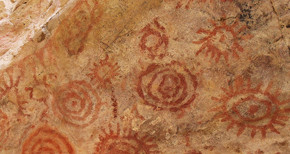SAA Releases Guidelines for Promotion and Tenure for Archaeologists in Diverse Academic Roles
The report will help candidates and committees properly assess work that falls outside of traditional scholarship.
Archaeology is a rich and varied discipline, but one that can be hard to quantify by standard academic metrics. To help academia properly evaluate current practices in archaeological scholarship, the Society for American Archaeology has released the Report of the SAA Task Force on Guidelines for Promotion and Tenure for Archaeologists in Diverse Academic Roles.The report focuses on the interdisciplinary nature and challenges of archaeology.
Archaeologists are very likely to have dual appointments in the academic environment. They may run or have a partial appointment to the consulting office of the university—doing archaeological studies and cultural resource management for public and private clients—or they may have joint appointments with museums and other sites that engage the public. The report covers all aspects of current archaeological scholarship, including digital archaeology and working with the public. It was developed to help candidates and committees to give proper weight to work that falls outside of traditional scholarship, as part of the overall tenure and/or promotion package.
According to Daniel Sandweiss, SAA Board Liaison to the task force that developed the guidelines, “Non-traditional scholarly work can have a tremendous impact, but review committees may be unsure as to how it should ‘count’ towards promotion and tenure. The guidelines will help candidates and committees measure the impact and importance of a scholar’s entire body of work.”
The Task Force thinks the report will have relevance beyond archaeology. “Many fields are facing the same challenges when reviewing candidates for tenure and promotion. We think the guidelines can be useful to other fields as they develop their own metrics,” said SAA President Susan Chandler.
LuAnn Wandsnider, who chaired the task force, notes that what constitutes archaeological scholarship is evolving rapidly, with many different publics impacted by it. “I felt we needed a means to help candidates advocate on behalf of their scholarship and also help reviewers better evaluate the variety of scholarly products that we as ethical, practicing archaeologists in fact produce.”
The Task Force was composed of archaeologists with academic administrative experience in tenure and promotion who represented the diversity of academic settings and a junior scholar who had experience in a relatively new domain in archaeology, digital scholarship. The Report of the SAA Task Force on Guidelines for Promotion and Tenure for Archaeologists in Diverse Academic Roles is freely available on the SAA website.



